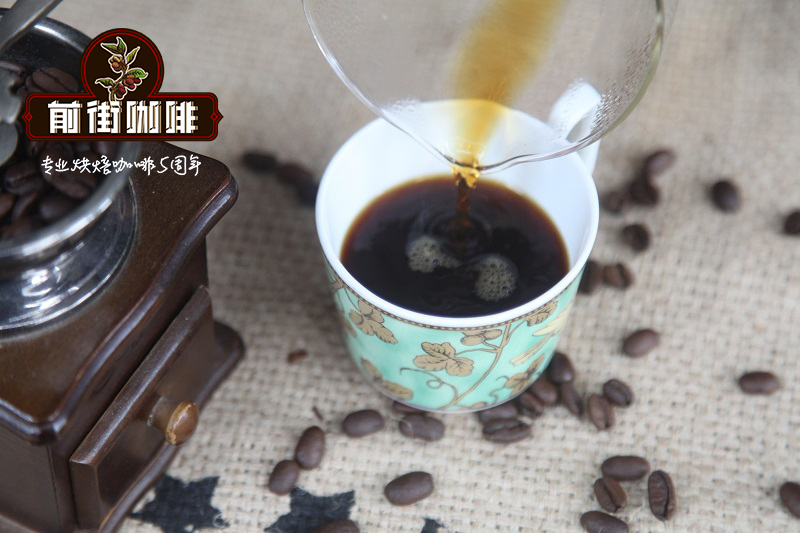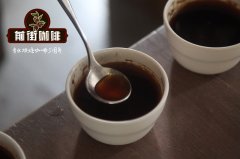Meng Lian Mangzhang Manor | Sun Katim flavor | how to drink Yunnan coffee?

Professional coffee knowledge exchange more coffee bean information please follow the coffee workshop (Wechat official account cafe_style)
Yunnan was first introduced by French missionaries in 1902. Up to now, there are still 24 coffee trees more than 90 years old in Zhukula Township, Binchuan County. In 1914, the border people of the Ruili Jingpo nationality were introduced from Burma to Nongxian Village. The variety types are small grain species, medium grain species and large grain species. Stem erect, simple leaves opposite. Several flowers are clustered in leaf axils, white and fragrant in color. The fruit is a drupe, which is composed of exocarp, mesocarp, seed coat and kernel. There are usually 1 seed, occasionally 2 or 3. It is suitable to plant in the sandy soil with a rainfall of 1000 Mel 1800mm, loose soil, fertile soil and good drainage, with a pH value of 6 Mel 6.5, an average annual temperature of 18 Mel 25 ℃, and an altitude of less than 1400 meters.
Yunnan coffee is mainly distributed in 11 prefectures and cities, such as Baoshan, Simao, Yuxi and Dehong. Tibika and Bobang, two classic high-quality coffee varieties, are the main cultivated varieties of coffee in Yunnan. A variety of Arabian species (also known as small seed species). Because the morphology and habits of the two varieties are similar, the two varieties are mostly mixed. Bobang terminal bud tender leaves are green, called green top coffee; Tiebika top leaves are red copper, called red top coffee.
Yunnan coffee was planted on a large scale in the mid-1950s, with a planting scale of 4000 hectares at one time. By the end of 1997, the planting area of coffee in the province had reached 7800 hectares. At present, the planting area of the province accounts for 70% of the national area, and the output accounts for 83% of the whole country. Yunnan coffee has established the dominant position in China in terms of planting area and coffee bean production.
The suitable planting areas of coffee in Yunnan are distributed in Simao, Banna, Wenshan, Baoshan and Dehong in the south and southwest of Yunnan.
Mangzhang Manor is located in Nayun Town, Menglian County, Yunnan Province, China. Founded by Hu Xixiang in January 1998, the farm covers an area of 512 hectares and is 1100 to 1640 meters above sea level. It is one of the largest coffee farms in Menglian County, Yunnan Province, with an annual output of 900t coffee.
In the past four years, Mangzhang has been promoted from a commercial-grade coffee such as Nestle to a boutique coffee farm. In January 2013, the CQI Cup of the United States scored 82.25. In 2015, the score of the third Pu'er Coffee Raw Bean Competition reached the SCAA grade. In 2016, the Yunnan Raw Bean Competition ranked 3rd and 12th, with a score of 84.3875 and 82.425 respectively, and the 8th in 2017.
Katim Sun in Menglian Mangzhang Manor, Yunnan Province
Yunnan MangZhang Catimor Natural
Producing country: China China
Bean seed: Katim Catimor
Area: Nayun Town, Menglian County, Yunnan Province
Farm: Mangzhang Manor
Farmer: Hu Xixiang
Altitude: 1100-1640 m
Treatment: Natural in the sun
Harvest time: December 2017
Important Notice :
前街咖啡 FrontStreet Coffee has moved to new addredd:
FrontStreet Coffee Address: 315,Donghua East Road,GuangZhou
Tel:020 38364473
- Prev

Costa Rica Angel White Honey Kiss Coffee hand brewing parameters sharing _ Angel Manor Coffee Flavor characteristics
Professional coffee knowledge exchange more coffee bean information please follow the coffee workshop (Wechat official account cafe_style) Costa Rica Angel White Honey Kiss Costa Rica Micro Mill planting area: Los Angels Manor elevation: 1950 m Variety: Catuai treatment: honey treatment Baking degree: shallow roasting from Costa Rica Coffee Manor-Angel Manor
- Next

Eureka Gold Award Yunnan Cong Gang Coffee | Katim Catimor Coffee Flavor
Professional coffee knowledge exchange more coffee bean information please follow the coffee workshop (Wechat official account cafe_style) Yunnan Coffee, China. It was introduced around the eighteenth century. At present, the planting area accounts for more than 90% of the mainland, and it is mainly exported to Europe and the United States as raw materials. With the development of boutique coffee, the quality here is becoming more and more stable, and the management system is expected to be localized and informative.
Related
- Detailed explanation of Jadeite planting Land in Panamanian Jadeite Manor introduction to the grading system of Jadeite competitive bidding, Red bid, Green bid and Rose Summer
- Story of Coffee planting in Brenka region of Costa Rica Stonehenge Manor anaerobic heavy honey treatment of flavor mouth
- What's on the barrel of Blue Mountain Coffee beans?
- Can American coffee also pull flowers? How to use hot American style to pull out a good-looking pattern?
- Can you make a cold extract with coffee beans? What is the right proportion for cold-extracted coffee formula?
- Indonesian PWN Gold Mandrine Coffee Origin Features Flavor How to Chong? Mandolin coffee is American.
- A brief introduction to the flavor characteristics of Brazilian yellow bourbon coffee beans
- What is the effect of different water quality on the flavor of cold-extracted coffee? What kind of water is best for brewing coffee?
- Why do you think of Rose Summer whenever you mention Panamanian coffee?
- Introduction to the characteristics of authentic blue mountain coffee bean producing areas? What is the CIB Coffee Authority in Jamaica?

